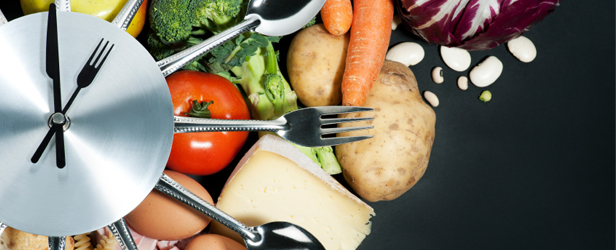
One thing (of the many) I've learned over the years of coaching hundreds (if not at this point thousands) of people is that there are two sides to every coin. Some of us only see one side, and we stick to our guns and hold fast to that opinion. But what happens when the other side of the coin kinda makes sense, but we shy away from looking into that side because, well, the other side is the "right" side.
I'm a both-sides-of-the-coin person. Perhaps that's because I'm a 9 on the Enneagram. My ability to see both sides of most situations seems like a positive trait, yet it haunts me to my core. Why? Because where some people would fall to one side, my mind toggles back and forth between both sides, never truly picking a side, and agonizing over which one is "right."
But here's the kicker: There are often times no "right" side.
This quarantine regarding Covid-19 is a great example. Camps on both sides (Stay Home vs. Restore the Economy) are staunch in their support of their side. Me? I see both sides. But without getting into a debate over this, let's move on to what I'm here to actually write about.
Food Rules.
One camp says we should have no rules. We shouldn't have to follow a diet plan. We shouldn't have to choose from a list of "acceptable" foods. And we most certainly shouldn't deny ourselves of the treats and goodies when participating in a social event with friends and family. Because who wants to live feeling chained down by rules?
The other camp says that if you don't have guidelines and if you don't learn how to say no to unhealthy foods, you'll constantly be stuck on the hamster wheel of an unhealthy lifestyle. (Mind you, this isn't totally about losing weight, which is a whole separate conversation, this is more about fighting disease, sickness and being overall healthy.)
Personally, I see both sides of the story. Having so many restrictions can drive some people to stress about food. It becomes a constant obsession over what to eat, when to eat, and how much to eat. They fear over what's "good" and what's "bad", with the haunting fear that eating something from the "bad" list will ruin everything. The thought of counting calories becomes a chore in and of itself to which they end up throwing out the window eventually. Sometimes it's a crippling fear that leads to bigger disordered eating issues.
Having no guidelines, however, and allowing someone to eat "intuitively" gives them the OK to eat what they want. Sounds like a positive, right? But what happens when they struggle to control themselves, choosing too many unhealthy foods over quality foods that can decrease their medication or physical ailments? If we tell them it's ok to eat what they feel like, how can they learn to change their habits into a healthier lifestyle that leads to less sickness, less medication and a longer life?
(And yet one could still argue that being "healthy" is a personal preference anyway, that living a life of movement and quality foods isn't for everyone. Of course I'm biased in the situation because I've seen the effects over and over of those who fail to be healthy and those who turn their life and health habits around.)
The key takeaway here is, as my Enneagram Number 9 would dictate, the side of the coin you choose to follow depends on the person. As I follow some fitness folks on social media, promoting their side of the coin, I see so many that resonate with it and find comfort and triumph in those principles. And yet I can usually think of a handful of people that would struggle with that framework, largely due to past diet experiences, health struggles, and their mindset regarding food, body image and mental state.
Finding what works for you takes time. In my own life, there are times when I find solace in following a plan, and there are other times where I know I would benefit from being more flexible. During times of flexibility are usually times when I'm not looking to compete or achieve a certain aesthetic look. No matter which side of the coin I'm choosing, I know I am not defined by my appearance. I'm comfortable, nay happy, with my looks regardless of size, weight, bodyfat, etc.
My goal as a coach is to educate my clients, to help them find a solution that works for them. Most do achieve weight and/or fat loss and others are just looking to get off medication. Teaching them how to get out of traps like mindlessly eating junk, binging on a bottle of wine, or avoiding eating out of fear are all behaviors that require a deeper understanding of themselves.
Many times, there is no one size fits all. Perhaps after rereading this post, I lean a little more toward one side, but it's more about learning yourself, your triggers and prioritizing what goals you have. If you have a goal of losing weight, but yet love the idea of having no food rules (ie, eating what you want when you want), then you *might* struggle to find that balance. NOTE: there are ways to reach your goals, find some structure, and still enjoy foods on occasion.
Seeing both sides of the coin can be very helpful when coaching different people. After all, we are all INDIVIDUALS with different needs and different ways of getting from point A to Z. Remember that next time when you see someone doing it a certain way.... that way might work for them, but be disastrous for you.
Find what works for YOU.









1 Comment